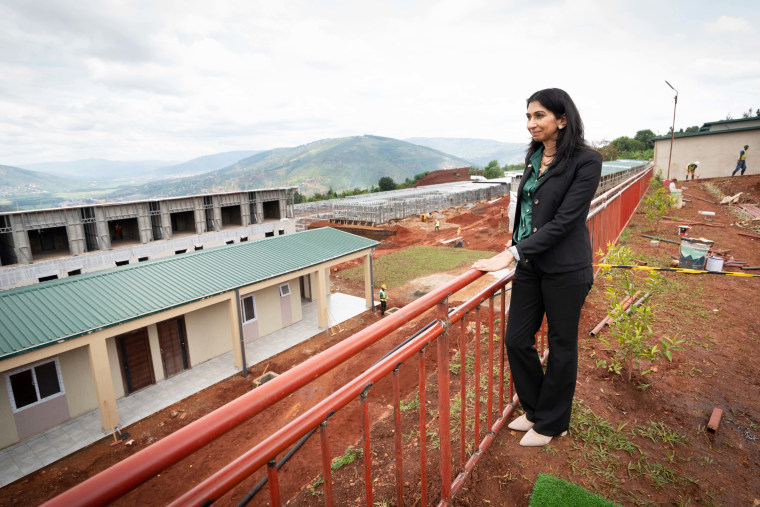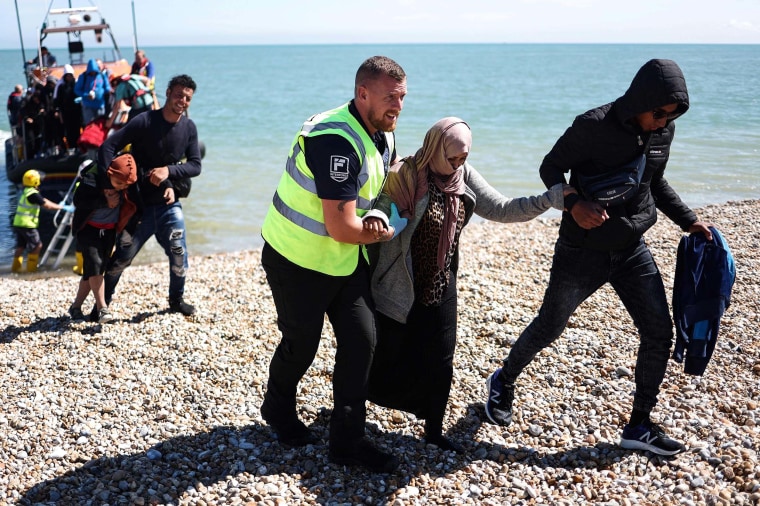LONDON — The United Kingdom's heavily delayed and contentious plan to deport asylum-seekers to the central African state of Rwanda was rejected by the British Supreme Court on Wednesday.
The ruling from the country's highest court hands a major blow to Prime Minister Rishi Sunak, who had made "stopping the boats" — a populist rallying cry for halting unauthorized migration across the English Channel from France — a major promise ahead of a likely general election next year.
The Rwanda plan was designed as a deterrent to the thousands of migrants, mainly from South Asia, the Middle East and Africa, who make the dangerous crossing in small dinghies and pleasure boats. It was fiercely criticized by international human rights groups and domestic opponents.
Rwanda received an initial £140 million ($174 million) last year to receive migrants who made the 4,000-mile trip — although none have been sent yet. Wednesday's ruling cast doubt that would happen.
"This was not the outcome we wanted, but we have spent the last few months planning for all eventualities and we remain completely committed to stopping the boats," Sunak said in a statement.
A group of five unnamed migrants — three from Syria, one from Iran and one from Iraq — challenged the legality of the plan in an appeal and argued that Rwanda does not count as a "safe country."
The five Supreme Court judges said there was "a real risk that persons sent to Rwanda would be returned to their home countries where they face persecution or other inhumane treatment when, in fact, they have a good claim for asylum."
A lower court previously ruled that the policy was legal, Wednesday's ruling noted. "However, the way in which the Home Secretary had implemented the policy in the claimants' individual cases was procedurally flawed," it said.
Specifically, the policy was judged unlawful because the U.K. adheres to the European Convention on Human Rights, a charter that obligates states to ensure people are not subjected to torture and other abuses.
A statement by Sunak later on Wednesday said the government was working on a legally binding treaty with Rwanda to address the court’s concerns. Should that fail, Sunak said he would consider changing U.K. law and leaving international human rights treaties to move forward with the plan.
More than 20,000 people have the made the crossing this year, according to official figures, including 800 on one day. This is still less than in 2022, when more than 45,000 made the trip. But the influx is still putting strain on some local authorities in the U.K., which during a national housing crisis are putting some migrants in hotels and student accommodations.

The Rwanda plan was the brainchild of the former interior minister Suella Braverman, who was fired Monday by Sunak after she accused police of bias toward pro-Palestinian demonstrators she described as "hate marchers."
Braverman released a scathing resignation letter Tuesday, attacking Sunak for abandoning or ignoring right-wing projects he had allegedly agreed to uphold and for not having a "plan B" should the Supreme Court reject the Rwanda plan.
The plan has been strongly criticized by opposition lawmakers, human rights groups, migrant welfare charities and lawyers but right-wing lawmakers and supportive newspapers continue to argue that the plan is the key to stopping the boats, which are linked to extensive organized crime groups.
Braverman and her allies continue to argue that Britain should leave the European Convention on Human Rights, which was created after World War II, inspired by Winston Churchill and drafted by a British Conservative barrister.

